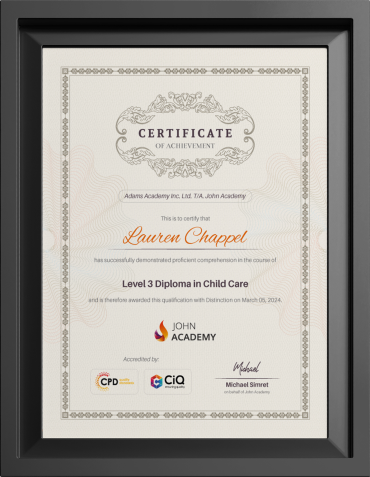

Learning a second language can have many benefits to an individual’s life. It can open new opportunities, provide access to different cultures and develop one’s understanding of the world.
Communicating in multiple languages is becoming increasingly important as society becomes more globalized these days. Through increased exposure to other cultures and communities, individuals gain insight into different ways of thinking and living that may be previously unknown or unfamiliar. All these enhancements contribute towards providing people with greater confidence in their professional and social communication abilities.
This post will discuss how learning a second language enriches an individual’s life by exploring its cognitive, social, and economic advantages. Keep on reading to learn more.
Benefits Of Learning A Second Language
If you’re looking to advance your career or enrich your personal life, the advantages of bilingualism are undeniable.
Here are some of the reasons why investing time and effort into learning a second language is a smart and worthwhile endeavour:
1. Increased Cognitive Function
One of the most significant benefits of being multilingual is increased cognitive function and brain plasticity.
Research has shown that individuals who speak multiple languages tend to exhibit higher levels of concentration, improved decision-making abilities, better problem-solving skills, enhanced memory retention, and overall greater mental flexibility than those who only speak one language. For instance, multilingual individuals are quicker at switching tasks and allocating attention when working on complex problems.
Hence, it’d be best to invest in learning two languages by enrolling in Korean language lessons or French writing training to improve cognitive functions.
2. Improved Communication And Interpersonal Skills
Learning a second language can significantly improve communication and interpersonal skills. It enables an individual to interact with people from other cultures in their native tongue, allowing them to effectively understand each other’s points of view and build stronger relationships. This can be especially beneficial for those traveling abroad or working internationally, as it allows them to appreciate the nuances of different cultures better.
In addition to enabling greater intercultural understanding, another perk is that learning another language leads to improved problem-solving capabilities by developing mental flexibility. People who know more than one language often display higher levels of creativity due to being able to think outside the box while finding solutions to various problems.
3. Enhanced Career Prospects And Earning Potential
The benefits of learning a second language go beyond improved communication and interpersonal skills. They extend to enhancing career development and earning potential too. Knowledge of two or more languages can be an asset in the professional world, as it makes job seekers stand out from other monolingual applicants.
Employers often look for bilingual candidates in certain positions, such as customer service representatives, translators, international business consultants, interpreters, travel agents, and tour guides, that requires working with people, clients, and partners speaking different tongues.
4. Expanded Cultural Awareness And Empathy
Individuals can gain access to new and different cultural perspectives by learning a second language. This can allow them to become more aware of their own culture compared to others while expanding their understanding of other cultures around the world as well.
Additionally, acquiring a new language can enable a person to develop a more profound sense of empathy towards those who come from different backgrounds than themselves as they learn about the differences between languages and how that reflects various customs and beliefs. Through this process of increased exposure to varying cultures, learners can discover more about humanity on an international level, potentially leading them to become better global citizens.
Factors To Consider When Choosing A Second Language
Learning a second language can be an enriching experience, that’s why it’s vital to consider the following factors when deciding which language to pursue
1. Language Resource Availability
When deciding which language to learn, it’s crucial to consider the availability of resources that can help with learning. Many options are available today for those interested in pursuing foreign language education, such as the following:
- Online Courses: Many websites offer comprehensive courses taught by experienced instructors.
- Tutors: Private or group lessons provide an opportunity to improve pronunciation and gain personalized feedback from a professional teacher.
- Books And Podcasts: Numerous books and podcasts are dedicated to teaching different languages at all proficiency levels.
By taking the time to research the various resources available, learners will be able to find the best option for their specific needs and goals.
2. Language Complexity
The complexity of language can vary greatly depending on the individual’s native tongue and prior knowledge of a particular foreign language. A person’s ability to learn a new language may range from simple to more advanced, but anyone can become proficient at speaking it with commitment, dedication, and effort. It’s essential to recognize that learning a second language requires patience and practice.
3. Interests In Cultural Aspects And Language
Learning a second language isn’t only an effective way to broaden one’s communication skills, but it also allows an individual to experience different cultures.
Individuals becoming more proficient in their chosen language can increase their understanding and appreciation of cultural differences. This can be accomplished by participating in activities such as reading literature from other countries or attending special events celebrating foreign cultures.
Furthermore, speaking multiple languages allows people to engage in conversations with others who may be native speakers of those languages. Doing so exposes them to new ideas and perspectives that’d otherwise remain inaccessible. Through these conversations, individuals can gain valuable insight into what interests them most among various topics related to the language and its associated culture.
4. Benefits When Moving Abroad For Study, Work, Or Immigration
Acquiring a second language can substantially benefit an individual who’s moving abroad for study, work, or immigration. By mastering the local language, individuals can develop relationships with peers and colleagues in their new environment more quickly than those who remain monolingual. This allows them to engage in meaningful conversations, share personal experiences, and understand inaccessible cultural references.
Furthermore, fluency in the local language is often an essential requirement for many jobs while living abroad. Being proficient in spoken and written communication enables individuals to perform better at work, land higher-paying positions, and advance further within their careers.
Beyond providing practical advantages for everyday life situations, being fluent in a foreign language has psychological benefits as well, which include increasing self-confidence and allowing people to feel more connected with their community.
Tips When Learning A Second Language
Learning a second language can be an invaluable asset to enrich one’s life. It provides the opportunity for cultural exploration, opens doors to new job opportunities, and unlocks a diverse range of entertainment experiences. To maximize these potential benefits, here are some tips to guide you:
1. Establish Language-Learning Objectives
Setting achievable goals is essential for those looking to improve their language-learning skills. By keeping track of progress and rewarding oneself for small successes, learning a new language becomes more manageable and enjoyable.
Generally, these goals should focus on specific areas, such as grammar rules or vocabulary terms. Plus, learners should consider breaking down larger tasks into smaller steps or using spaced repetition techniques, allowing them time to digest one concept before moving on to the next. This incremental approach allows for steady improvement without becoming overwhelmed with too much information at once.
2. Learn Basic Vocabulary
Learning new vocabulary can make one more confident and proficient in using it. As such, mastering basic words is an essential step toward achieving fluency.
The process of memorizing new words requires dedication and repetition. Many strategies can be employed when studying; these include mnemonics or visual cues such as pictures and images. Whatever method is chosen, regular practice will help ensure that words are retained over time.
By committing to an ongoing study of common vocabulary items, people can quickly reach proficiency levels necessary for everyday communication in their desired foreign language.
3. Begin Using the Language Every Day
Using a second language can benefit an individual’s life in many ways. Using the language daily is one way that fluency can be achieved and enriched lives can be created.
The first step to using a new language every day is to start practicing it with daily conversations. This could involve talking out loud or having written exchanges with other people who speak the same language.
Here are some tips for incorporating a second language into everyday life:
- Set small goals such as reading short articles or learning how to pronounce certain letters correctly;
- Take advantage of available technology like translation apps or online dictionaries; and
- Join local clubs/groups where you can practice your conversational skills.
By doing these activities regularly, individuals will eventually become comfortable speaking the foreign language in more complex contexts beyond simple conversation starters.
4. Use Flashcards
One of the most effective techniques for those interested in mastering a new language is using flashcards.
Flashcards are an excellent way to practice vocabulary words or phrases while reinforcing pronunciation and hearing skills. By breaking down complex concepts into more manageable pieces utilizing flashcards, users can quickly learn by repetition and recall what they have learned.
Further, flashcards can greatly improve memorization capabilities, such as retaining grammar rules or specific verb conjugations when used correctly. With regular usage, students will find that learning becomes much easier over time. As such, it’s no surprise that this method has become so popular among language enthusiasts worldwide.
To further enhance understanding, learners may create their own personalized sets of cards based on relevant topics or supplement existing decks with additional materials. Through careful study combined with interactive tools like flashcards, individuals can unlock the potential for gaining fluency in any language much faster than traditional methods alone.
5. Watch Movies With Subtitles
Watching movies with subtitles is an effective way for learners to become familiar with the differences of a foreign tongue by engaging with native speakers’ pronunciation, slang, intonation patterns, and cadences.
Here are four benefits of watching films in their original language:
- Increased comprehension of grammar rules
- A greater understanding of colloquialisms;
- Improved listening skills; and
- Enhanced speaking abilities.
By immersing themselves in the culture through film-viewing experiences, students will develop fundamental knowledge about the target language, leading to deeper conversations with people worldwide and more meaningful cultural exchanges.
6. Invest In Tutoring
Investing in tutoring sessions with a certified instructor provides another avenue for learning a second language. Not only does this allow individuals more personalized instruction than traditional courses or self-teaching, yet it allows them to focus on specific areas that may need improvement too.
Typically, tutors have access to resources and can provide feedback that aids in achieving fluency faster, as well as helping students gain confidence while speaking the new language. In addition, they can structure lessons according to each student’s needs and abilities, such as providing creative ways to remember certain words or phrases, offering conversation practice, and role-playing activities.
Investing in dedicated tutoring sessions helps improve confidence while speaking the new language and ensures faster progress by tailoring lessons specifically toward each person’s needs.
7. Immerse Yourself Through Travel
Traveling while speaking the native tongue of the destination can be an incredibly enriching experience. To make the most out of these trips abroad:
- Research local customs, traditions, and etiquette before departing;
- Make sure you know how to ask basic questions in the language;
- Engage with locals as much as possible during your stay; and others.
Interacting with people who are native or fluent speakers will not only improve linguistic skills but also lead to priceless memories that will last for years to come. It’s important to immerse yourself in the culture by participating in cultural events, exploring landmarks, trying traditional cuisine, and using public transportation.
8. Look for Real-Life Experience
After gaining a basic understanding of the language through classes or self-study, one should seek real-life practice with native speakers to gain fluency. It has been scientifically proven that simply listening to people speaking their native language helps build proficiency; this type of active learning makes remembering words and grammar rules easier as they are heard in context rather than isolated examples found in textbooks.
And by engaging with locals while abroad, travellers gain unique and personal insight into the culture that can’t be attained from just reading books or watching videos. They learn customs, etiquette methods, jokes, slang terms, and more. This kind of social interaction allows for making friends among those with different experiences and worldviews than your own as well, widening one’s horizons.
Conclusion
Learning a second language can positively impact many aspects of one’s life. From enhanced career prospects, increased cognitive function, and improved communication skills to expanded cultural awareness and empathy, numerous benefits can be gained from becoming proficient in another tongue. Just remember that any individual, including yourself, can reap the rewards of learning a new language through serious dedication and effort.







